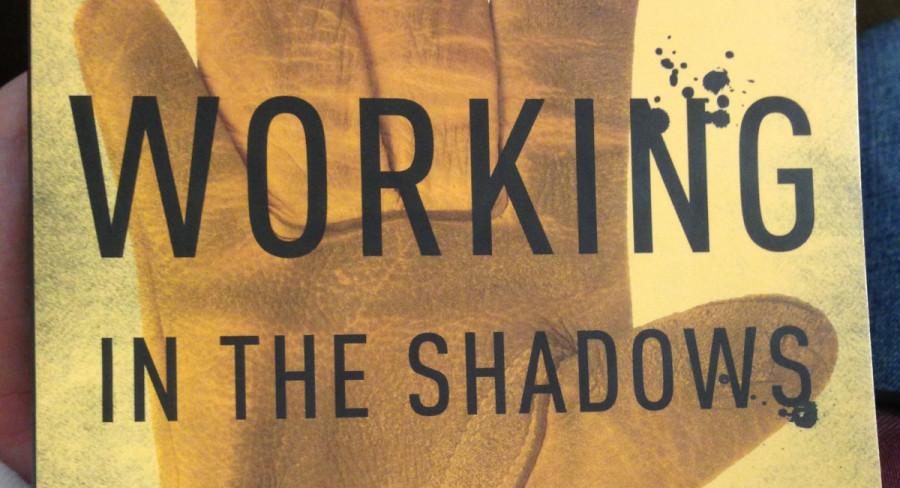This year’s impactful summer reading novel, Working in the Shadows: A Year of Doing the Jobs [Most] Americans Won’t Do, has been eye-opening and perspective-changing for many students who immersed themselves in the unimaginable work of immigrants throughout America.
The author, Gabriel Thompson, is a dedicated journalist who travels across the country to uncover the difficult lives of Latino immigrants whose contribution to the U.S. economy seems to go unappreciated. With the current controversy of whether or not to provide a road to amnesty for these individuals, the author reveals the personal side to a group that often are the victims of stereotyping.
The idea of a path to citizenship after reading the account varies among students. When asked, sophomore Holly Nies explained, “I think some of them do. The ones that are doing the illegal things don’t, but the ones that are trying to make a living for their family do.”
During some chapters, the book presents racist and deragatory remarks made toward the Mexican and Guatemalan employees. However, students agreed that the author remained unbiased and fair toward all nationalities that he encountered.
The first occupation that Thompson tackled was working in the lettuce fields of Arizona; cutting and bagging thousands of heads each day. Senior Ed Rogalski said, “It was disappointing to know of conditions in Yuma.” The physical and fast-paced speed of this grueling job leaves many who attempt astonished and unable to continue.
Following this, the author moved to Russellville, Alabama from June to August to work in a chicken processing plant. Sophomore Molly Dunbar simply stated, “I thought that it was kind of gross;” something that all readers can agree with. The Pilgrim’s Pride employees had to endure freezing temperatures and dangerous, repetitive work.
Next, Thompson applied and was accepted to a flower shop in New York, New York. This job didn’t last long, though; the bosses Tony and Helen verbally harassed their workers and paid less than minimum wage. On top of this, lunch breaks were stripped from the workday. Robert Talarico, junior, commented, “His boss was really mean. He was treated really unfairly.”
Finally, journalist Gabriel Thompson becomes a deliveryman at a popular Mexican restaurant in the city. He must quickly adapt to maneuvering around traffic on an unsteady bike, and a life heavily relying on generous tips from customers. Freshman Diana Pineda revealed her thoughts: “The delivery people deserved to get more money because they had to deal with the roads.”
Joliet West High School staff members also formulated their own opinions on the piece. Librarian Barbara Peterson admitted, “The chapter on the chicken factory made me hesitant to go to KFC,” also adding, “I now have new insights into how lettuce gets to the Jewel.”
As Publisher’s Weekly released, the text is, “a stirring look at the bottom rung of America’s economic ladder.” Whether highschoolers or educators, the summer reading novel definitely sparked discussion and altered opinions.
If you would like to reach journalist Gabriel Thompson, you can e-mail him at:

